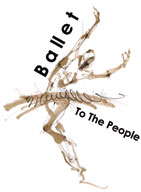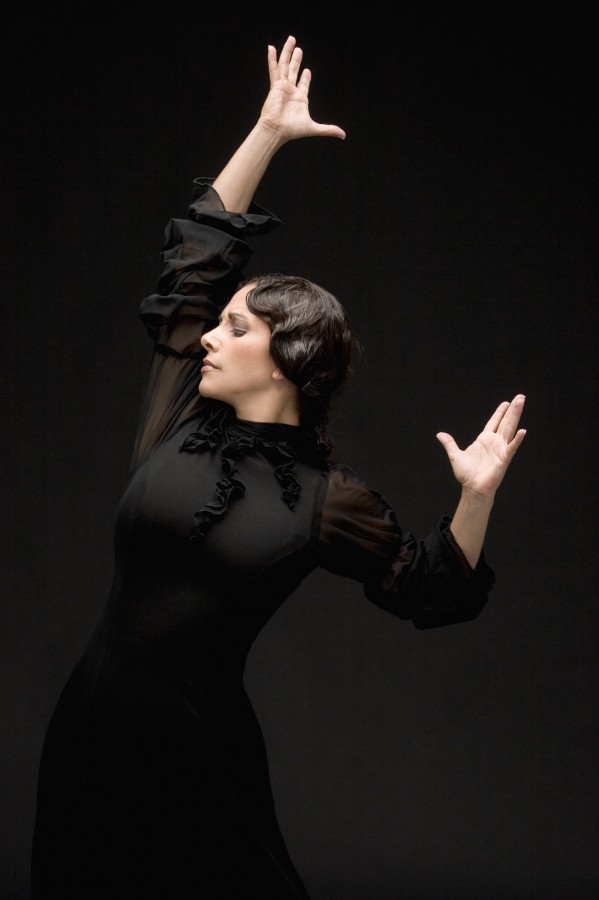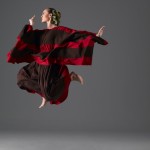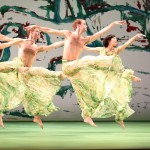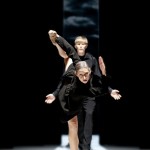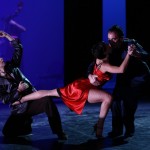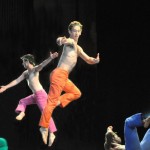Leigh Donlan reports from Cal Performances at Zellerbach Hall, Berkeley:
Eva Yerbabuena, the gypsy queen of the flamenco dance world, is in the process of renovating her art form, as demonstrated by Lluvia (‘Rain’), Ballet Flamenco’s evening- length performance which kicked off Cal Performances’ Focus on Flamenco series at Zellerbach Hall on Wednesday evening.
The evening’s strengths were in the solos. Yerbabuena is an outstanding performer who can carry a show by herself if need be, and all her dancers held their own, particularly Eduardo Guerrero, whose footwork drew gasps from the audience, though we unfortunately had to wait until the end of the show to see him unleash his true powers.
The musicians and vocalists were superb, and Antonio Coronel (drums) and Paco Jarana (classical guitar) in particular played exquisitely. But it wasn’t clear where Yerbabuena wanted to take us, possibly because she’s still figuring it out. The program notes indicate that Lluvia was “born on a gray day of pure melancholy” and that in it, she is trying to explore her beginnings. The first half of the program was devoted to experiments with movement, occasionally fused with traditional flamenco, that often fell flat in the ensemble work, not due to dancing but to choreography that was stiff and unrevealing. The most memorable movement was the exalted cambré, a motif repeated by the four dancers (Lorena Franco, Mercedes de Cordoba, Christian Lozano and Guerrero) where they arched their backs over a plié in parallel, with arms reaching up towards the heavens. The yearning was clear, if all else was vague.
But by the second half of the show, all reserve was gone and we were treated to many of Yerbabuena’s spellbinding solos. Oh, the stories her feet tell, of rolling thunder, a chirping of a bird, even a firing squad; her percussions are outstanding. The evening closed with her solo piece Llanto (‘Crying’.) The heartbreaking vocals of Jose Valencia, Enrique “El extremeño,” and Juan Jose Amador told tales of family, loss and love as she anguishes alone in her dance, wearing a traditional bata de cola, a dress with a long train that she elegantly manipulated about her ankles like an anchor. Her hands were birds one moment and trembled into fists the next as her feet began to fire, releasing an eternal fury upon the stage floor. This was Eva Yerbabuena at her best, fearless and unstoppable.
